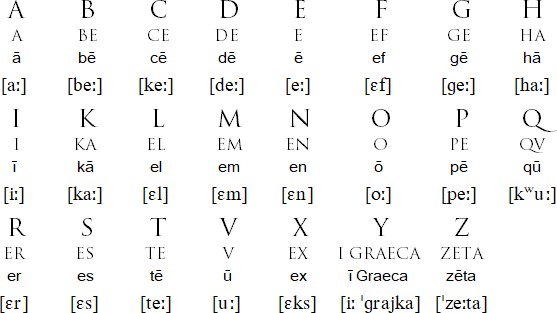How to Say Lost in Latin?

There are multiple ways to say lost in Latin, depending on the context. Here are some examples of the different ways you can use when asking how to say lost in Latin
“amissum” This is the most common way to say lost in amissum language.
absum – I am away
I’m not here. abesse – To be away: To be out of town, or physically gone (from a place). This word is more general than other words for absence, like abire and exire, which have more specific meanings.
Abesse – to be away
Abesse is a verb that you can use when you want to say to be away or to be missing. You can also use it if you want to say, to miss someone or something — or even if you just feel like being poetic. If your friend is at school and hasn’t called you all day, she may be absent; if you really miss your ex-boyfriend, he might very well be absent.
Absent – absent
The word absence is not found in common dictionaries. In Old and Classical Latin it meant absent, from a verb which meant to be away from home. It was not often used except as an adjective qualifying another noun. In post-classical Latin, it took on various meanings, including absent without leave, deserter, fugitive, lost, or strayed (person or animal).
Abcedo – go away
Abcedo is a verb that means to go away. The literal meaning of abcedo is to depart from one’s home. Abcedo is typically used as an active verb and often appears with adverbial phrases, such as cito (quickly), citrus (faster), tarde (slowly), and tardies (slower). For example: Quick! You must abcede ad bellum!
Departus – departure
Literally, departure or going away. It can also mean departure place. As a verb, it can mean to depart, but also has a connotation of leaving permanently.
Desiderium – longing, pining, or mourning (for something)
This word, used as a noun, indicates your deep and powerful yearning for something or someone. As an adjective, desiderium describes something that arouses longing or yearning.

Expulsus – exile, banishment, driven out of one’s country
expel, banish, expel from one’s country, exile. expulsus is a verb. It’s in third person and second singular form. It’s also an impersonal verb that takes on a reflexive pronoun (or gerund). You can learn more about these from your dictionary or from wikipedia pages on Latin grammar.
Fugio – flee, escape
If you’re lost and trying to find your way, fugio will help keep that from happening. This word can also be used if you want someone else to escape or get away from a situation.
Progredior – advance, move forward, progress, march onward
Your boss will be impressed with your professional skills and knowledge if you know how to say lost in latin. Progredior is a fourth declension verb meaning to move forward, go forward, advance. It’s conjugated pro-gre-di-or and translated as advancing, going on, marching onward.
Alphabet in Latin
The alphabet of the Roman Empire was a modified version of Greek, with some modifications to represent sounds that were not present in Greek. The earliest known use of this alphabet is on an inscription from Pompeii dated to around 80 BC, and it continued to be used until the end of the empire.
Latin Native Speakers
Native Latin speakers: Latin alphabet.
Language Code
Latin language code is: la.

Why should we learn the Latin language?
There are many reasons why we should learn Latin language or how to say lost in Latin. It is a very important language that has been used for centuries. Latin is the language of the Roman Empire and it is also the language of the Catholic Church. Latin is a very beautiful language and it is very precise.
One of the reasons why we should learn Latin language is because it is a very important language. Latin was the language of the Roman Empire, and it is also the language of the Catholic Church. Latin is a very precise language,e and it is very beautiful.
Another reason why we should learn Latin language is because it can help us to understand other languages. Latin is a very old language, and it is the root of many modern languages. By learning Latin, we can better understand the origins of modern languages.
Seven reasons to learn a Latin language
- The Roman Empire was the first global superpower. For nearly 500 years, Roman achievements in engineering, architecture, poetry, philosophy, and science impacted life across Europe, Africa, Asia, and North America. They built roads, aqueducts, bridges, theaters, sewers and even entire cities such as Rome itself.
- It’s the most widely spoken living language today. About 641 million people speak Latin worldwide, making it the most widely spoken living language, with over 1 billion learning English through it.
- Latin, the language of the ancient Romans, was spoken across the Italian peninsula and gradually spread beyond, forming the Roman Empire. Today, there are still large communities of Latin speakers in countries like Spain, Portugal, France, Belgium, Switzerland, Germany, Austria, Luxembourg and the Netherlands.
- Latin is valuable for business, with employers favoring applicants who studied it, according to the U.S. Department of Labor and Harvard University.
- It helps make sense of other languages. If you want to learn Spanish or French, knowing Latin makes it easier to learn those languages. After all, they both share similar roots!
- It’s fun. Learning Latin may seem difficult at first, but it doesn’t need to be boring. With online courses, it is possible to learn Latin in a way that is exciting instead of just plain hard work.
- It’s cheap. While learning Latin does take some time, it isn’t expensive. Online classes are free or low-cost, so students don’t have to spend a lot of money to learn this fascinating language.
So what are you waiting for? Why not start now? You might find that you enjoy speaking Latin as much as we do!
Vulgar Latin
Vulgar Latin served as the colloquial form of Classical Latin used in Europe during Late Antiquity and the Early Middle Ages. People also refer to it as Vulgar, vulgaris Latina, or the Romance language. The term “vulgar” comes from the Latin word vulgus meaning “people”.
Latin Grammar
Grammar is rules about how words combine with each other to form sentences. Grammar includes:
- Parts of Speech – Words that describe nouns (nouns), verbs (verbs) and adjectives (adjectives).
- Tense – Time reference when referring to past events, present events and future events.
- Mood – Emotions expressed by the speaker.
- Voice – Whether the sentence is said by one person or multiple persons.
The parts of speech are nouns, pronouns, verbs, adjectives, and adverbs, with pronouns replacing nouns and being singular or plural. Verbs express actions, and adjectives modify nouns. Adverbs modify verbs, adjectives or other adverbs. Some Romance languages still have a special form derived from the ancient neuter plural, which is treated grammatically as feminine.
Tenses show when an event happened in relation to another event. For example, if I say, “I am going to school tomorrow,” I’m telling you that my plans involve me going to school tomorrow. But if I sa,y “I went to school yesterday,” I’m telling you about something that happened before today. In English, tenses are marked using prepositions such as “to”, “at”, “in”, “on” and “by”.
Moods indicate the speaker’s attitude towards the subject matter. Specifically, there are two moods: indicative and subjunctive. In particular, the indicative mood shows facts or opinions, whereas the subjunctive mood expresses wishes, commands, or questions.
You can also learn how to say lost in latin.


Voices show whether the speaker is talking directly to someone else (“you”) or to everyone else (“everyone”). A sentence is a group of words that tells a story. Sentences can be simple or complex. Simple sentences contain one verb. Complex sentences contain more than one verb.
Reflexive Forms
Reflexive forms are those that refer back to the subject of the sentence or clause. In other words, the subject is doing something to itself. Reflexive forms are typically used in Spanish, French, and German but can be found in other languages as well. Check out this blog post to know why French is hard to learn.
There are three main types of reflexive forms: reflexive pronouns, reflexive verbs, and reciprocal pronouns.
Reflexive pronouns are pronouns that end in -self or -selves and refer back to the subject. For example, in the sentence “I hurt myself,” the reflexive pronoun “myself” refers back to the subject, “I.” Reflexive forms of pronouns are used in both singular and plural forms.
Reflexive verbs are verbs that are conjugated with a reflexive pronoun. In the sentence “I hurt myself,” the reflexive verb is “hurt.” Reflexive verbs are used when the subject is doing something to itself.
Reciprocal pronouns are pronouns that end in -self or -selves and refer to two or more people who are doing something to each other. For example, in the sentence “We hurt each other,” the reciprocal pronoun “each other” refers to the two people who are hurting each other.
Frequently Asked Questions
Forma is a Latin and Italian word meaning “form, shape, appearance”. Both the Latin form and the English form are used interchangeably as informal terms in biology: Form (zoology) and Form (botany).
The five classical Latin declensions are nominative, genitive, dative, accusative, and vocative. Moreover, these declensions were based on the gender of the noun.
Latin is not difficult to learn, but it does require some effort. To master Latin, you will need to spend time reading, writing, speaking, listening, and thinking in Latin. You may also want to take a class at your local community college or university.
In Latin, “lost” is translated as “amissus” for masculine subjects. Similarly, it is translated as “amissa” for feminine subjects.
You could say “Puer amissus est,” which translates to “The boy is lost.”





